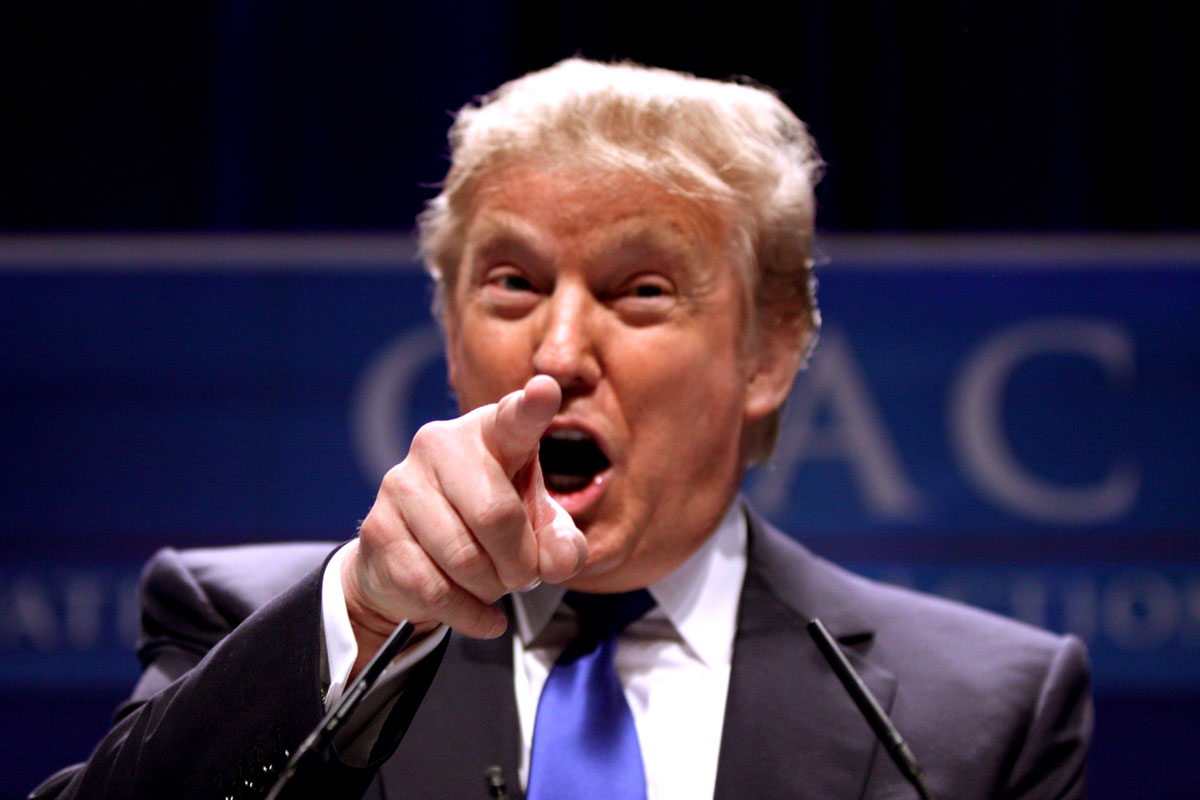Donald Trump has changed many things. His biggest legacy may be a change in the way politicians view truth.
On 8 October, US president Donald Trump wrapped up a press conference with a fascinating claim. Asserting support for some political position, he claimed his poll numbers, “I think they said”, had gone up by “17 points in the last two or three days”.
It was undiluted nonsense. A politician’s poll rating can only move that much upon the outbreak of war. As fivethirtyeight confirms, Trump’s poll numbers have stayed within a narrow seven-point range for the past two years.
Trump wraps up by claiming his poll numbers have gone up by 17 points (!) in the last three days 😂 pic.twitter.com/NHDs33mt6h
— Aaron Rupar (@atrupar) 7 October 2019
Trump probably knows his claim is nonsense. He said it anyway. What do we make of that?
Charitable interpretations
Let’s first try to make a charitable interpretation. There is his “I think they said” qualifier, with its very faint admission that he might be inaccurate. It is also just possible that he knows so little about his own poll numbers that he hasn’t noticed their uncanny stability and thinks they move around by 17 points all the time.
It’s even faintly possible that Trump was referring to some single-issue poll and just labelling it as “my polls”. Probably not, though; no-one can find any poll which has moved 17 points recently. And the term “my polls” suggests he was referencing generalised polling. It’s hard to avoid the conclusion that this was a flat-out lie, the latest in a very long line of them.
Trump’s defenders have, at this point, taken to claiming he’s just joking about a lot of his most outrageous claims. Those less invested in him take a grim delight in counting up the public falsehoods. As of August 2019, The Washington Post fact checker Glenn Kessler and his very busy team had counted 12,019 of them since he took office.
Let’s play a game: What is Donald Trump’s most demonstrably provable intentional lie as POTUS? Go. https://t.co/yfTpNZ2QM3
— Preet Bharara (@PreetBharara) 31 August 2019
Not quite lying
Let’s be a little more generous to the US president than The Post has been. Some of those 12,019 are labelled ‘lies’ when they are in fact contestable. That’s one reason that good reporters are cautious with the term ‘lie’.
For instance, many people doubt Trump’s repeated claim that lower corporate tax rates will boost the economy. There’s certainly no rock-solid proof of this claim. Yet it’s a defensible proposition that many economic experts support.
And Trump often says one thing while meaning another, similar thing. He used to say, for instance, that US corporations paid the highest corporate tax rate in the world; they actually paid the highest taxes in the OECD, which might have been a problem while not being quite the same problem. Such mistakes may not be ‘lies’, in the sense that the speaker may genuinely believe them to be true. There’s not actually a good word in English for this sort of untruth.
Misdirecting
And, yes, politicians have always lied. Years ago, a young politician explained to me, with great relish, the first big successful lie he’d made to further a cause he believed in – and to keep his career alive.
But that man was not, and never became a habitual liar in politics: he believed, like most politicians, that you should avoid lying unless the circumstances are dire. He also worried that if he lied too much, he’d get caught. During his subsequent career, he misdirected with the best of them. When cornered on a subject he wanted to avoid, he changed the subject; he answered questions he had not been asked. He strove mightily to avoid the outright “my-polls-just-went-up-17-points” lie, like almost all his colleagues.
Flat-out hooey
Donald Trump, though, seemed to roll out the 17-point claim without a care in the world.
And earlier in the same press conference, Trump claimed that when he came to office, the US armed forces had no ammunition. Now, courtesy of Donald Trump, they apparently have bullets and shells and missiles again. That, too, sounds like a statement from someone who just doesn’t care about the truth.
No politician that I can think of has lied as frequently and casually without descending into ignominy and disgrace. And yet more than 40% of US adults still approve of his performance as president.
Honestly, who knew you could lie like this and get away with it? Well, pretty much nobody. Until now. Brace for much more
Here’s the thing. Politicians all over the world watch every US president. Despite his 54 per cent disapproval rating, some are drawing lessons from Trump. Politicians keep an eye on anything that a US president seems to be exploiting effectively.
And while Donald Trump seems to be doing surprisingly well out of lies, we’re going to see an increase in political lying everywhere. It may still be risky, and it may soon be reversed if Trump falls in the next few years or so. But the risk is just a bit lower than it used to be. In fact, I’ve just been told it’s 17 points lower.
Read next: Honesty: The single most important leadership value







